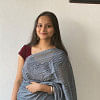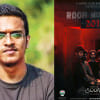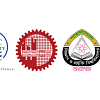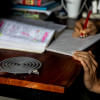BUET’s journey to ICPC Glory

The team "BUET Potatoes", consisting of Kazi Md Irshad Farooqui, Md Sabbir Rahman, and Sk Sabit Bin Mosaddek, from Bangladesh University of Engineering and Technology (BUET) was crowned the Asia West champions at the International Collegiate Programming Contest (ICPC) World Finals 2023, held in Luxor, Egypt, from April 14 to19, 2024.
In the global tournament known as the World Cup of competitive programming, the team secured a global position of 28 out of 124. In light of this historic achievement, Campus sat down with Sohel Rahman, a professor at the Department of Computer Science and Engineering (CSE), Fellow at the Bangladesh Academy of Sciences, and the team coach of BUET Potatoes, to learn more about the process and experience of representing the nation as part of the BUET ICPC team.
Campus (C): How does it feel to have done so well in the 2024 ICPC with BUET?
Sohel Rahman (S): A distinct advantage for us is that when we say BUET, we must say the name "Bangladesh" first. The tournament authorities present the victory announcements a bit dramatically. In the last hour, they freeze the results, as opposed to the first four hours, when we can see on the site how everyone is doing and which position they are in. What happened in the last one hour is screened at the final award ceremony, where they hand out the awards. For the awards, they award each regional champion and the overall top twelve teams. We were very close to the medal for a while, but were, unfortunately, unable to finish the last problem, due to which we didn't get a medal.
The feeling is extraordinary. When you go abroad, and someone even mentions "Bangladesh", you automatically feel proud. Alhamdilillah, our children do very well in these intellectual competitions, olympiads for example.
When we became Asia West champions and they announced our name starting with "Bangladesh", it felt very good to hear it in front of everyone. Our name is such, that just from the name you can tell that this is a Bangladeshi university and the number one university in Bangladesh. It is an extraordinary feeling. We are not prideful, but for the entirety of Bangladesh, it is something to be proud of. We felt honoured while accepting the award in front of everyone as representatives of Bangladesh.
C: Could you share what the BUET ICPC team selection process is like?
S: The CSE department leads this operation, but we also have gifted students who come from other departments and compete. Even back in 2021 when we became Asia West Champions for the first time, the team consisted of a student from the Department of Electrical and Electronic Engineering (EEE). We start from the very beginning. When the freshers come into BUET, we set up a camp and call for interested students across BUET, not just the CSE department. Here, we give students a basic idea and rundown of competitive programming and programming contests. Then, the interested students arrive under our umbrella.
As we form the team, we try to evaluate and make sure that the team is balanced. Suppose there is one student who has weaknesses in a particular algorithm, but he is very good at the other sides. When forming this team, we try to find another student who will complement this first team member by not having the same weakness. Likewise, we ensure that the third team member doesn't have the same weakness as the second member. So, we try to ensure that all three team members make up a complete team.
C: Could you tell us how the team had to practice to come this far?
S: A dedicated ICPC committee, of which you may think of me as a representative, runs the training and coaching operations. I have many younger colleagues who dedicate a lot of time and effort to these operations. Some BUET CSE alumni also dedicate their time and efforts to assist us with the training. For example, Preetom Kundu, from the 2021 ICPC team, has made significant contributions to coaching and mentoring the current team.
Of course, we can't do all this without challenges. On the day we for the final rounds in Egypt, it was the final exam of one of our final-year students, Sabit. We had to talk to the authorities and get that exam shifted to a different slot. If we had failed to do so, he wouldn't have been able to go and participate in the finals.
The ICPC journey starts in the regional contest. If we win that, we start training for finals.

C: ICPC is regarded as the World Cup of programming. For aspiring coders and participants, could you share an overview of the competition experience and how tough the competition can get?
S: Here, we have a prevalent misconception. I don't know if you noticed this or not, but there is a prevalent misconception that this competition is only about programming. Yes, programming is a big part of it, but so are problem-solving and analytical thinking. At the competition, you are given eleven questions and five hours to solve them. It is a two-step process, the first step is to find a solution to a very difficult problem, and then code the solution.
Solving the problem requires very high analytical ability. You have to understand the problem, and what's in it, and then apply an algorithm to it. Not only that, there is a time limit given to every problem, so when they run your solution code on the computer, it has to give you a solution within two seconds. If it takes more than that, you will have exceeded the time limit and your solution won't be accepted, even if it is correct. So, you have to attack in many ways, in many dimensions.
My advice for someone who wants to do well in programming contests is to practise analytical problem-solving the most. They should be able to think from a solution angle fast when they encounter a problem. They should also know coding very well due to the time limitations they are given, so that they can code their solutions within a short time.
They should also be of very strong character. At the competition, you are given one PC for a three-person team. If a teammate is using the computer and you have come up with a solution, you have to wait till they are done, under time constraints and a high-pressure environment.
So, you have to have three characteristics to do well – be an analytical problem solver, a skilled programmer, and have strength of character. InshaAllah then, you will do well.
C: Do you have any future ambitions for the BUET ICPC team that you would like to share with us?
S: As a representative of the committee, I'd like to first share about something that is a systematic problem, in my opinion. It is that the style of our academics doesn't emphasise analytical ability and problem-solving very well. This has created the scenario that students have to practise these skills besides their studies. For example, if a student is good at analytical problem solving, it would be automatically reflected in their results, but it is not, as the system of academics is very memorisation-heavy.
But the situation is different, they have to study in one way, and then to improve their analytical ability they have to take separate preparation. Due to this, it becomes a bit difficult to cope with these things together. To graduate from BUET, you need to pass 40 courses, all of which require lots of memorisation. So, a lot of students who have a lot of potential and showcase all three characteristics I just described, may at one point decide that they can no longer continue competitive programming.
Therefore, my vision and mission is to find out how I may nurture these gifted students, so they can focus more on their interest in this, while also continuing their studies.
Something else that I want to share is that back in 2021, when we became Asia West champions, many people assumed that we had just suddenly won the recognition. That's not true, we have been doing this for a while. When we won in 2021, I had a determination that we would repeat this. In 2022 we weren't able to for a little bit, but we did it again this year, Alhamdulillah.
I believe we can win the medal as well. The target should be to instil that belief in ourselves. Previously, we didn't have the confidence to believe that we would be Asia West champions one day, but ultimately, we can do it not just once, but twice.
We ranked 28 globally, leaving behind teams from many other regions. Now, the vision is to secure a medal in the future at the ICPC World Finals, and I truly believe that our students have the talent to do that. We just have to collectively try to remove our systematic barriers in academics and believe that we are capable.
Amrin Tasnim Rafa is a sub-editor of Campus.

 For all latest news, follow The Daily Star's Google News channel.
For all latest news, follow The Daily Star's Google News channel. 








Comments